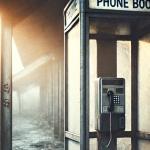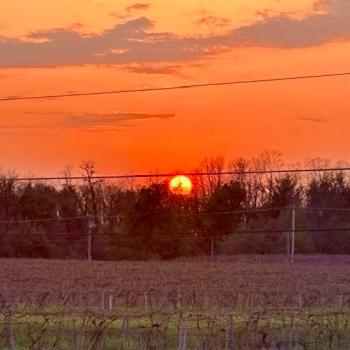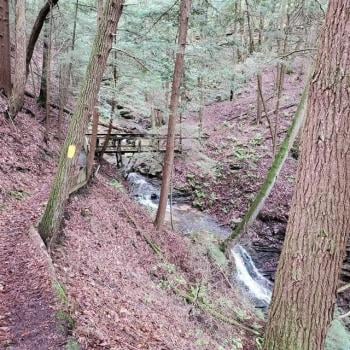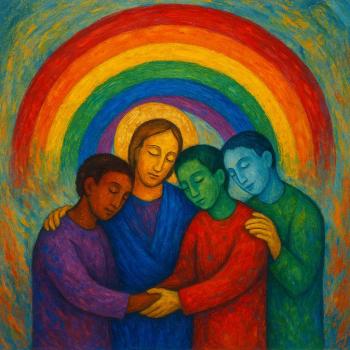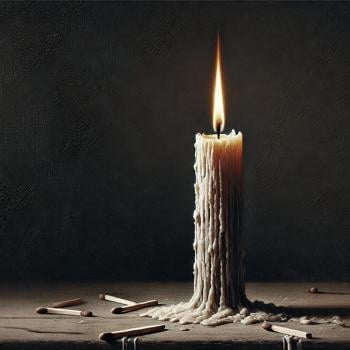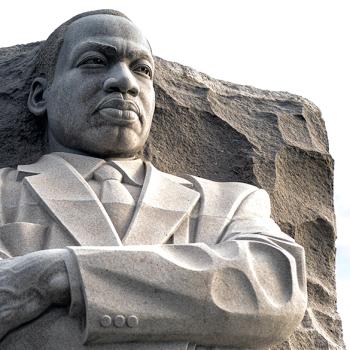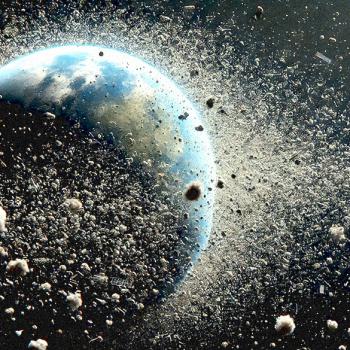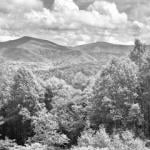
Ever found yourself staring at the ceiling at 3 AM, wondering what the hell it all means? Or maybe you’re just scrolling through Twitter, feeling like the universe is run by a cosmic intern who’s already checked out for the weekend. Whether you’re contemplating the mysteries of existence or just surviving another news cycle, we’re all chasing the same thing: some kind of answer to the big, unknowable questions.
Science gives us some tools to take a crack at it—things like Penrose diagrams and wormholes—while faith rolls out its own roadmaps, usually with a lot more intense and way fewer footnotes. Both are trying to make sense of the great unknown. But while science says, “Hey, we’re still figuring this out,” faith tends to come in hot with, “We’ve got the final answer, no questions asked.” And that’s where things start getting interesting.
Penrose Diagrams and Theological Cartography
First, let’s break down this thing called a Penrose diagram. Picture a tool that helps physicists make sense of what’s happening around black holes—those cosmic vacuum cleaners where time and space bend in ways that make your head hurt when you watch Interstellar. Penrose diagrams are like cheat sheets for the universe’s craziest places; they simplify mind-boggling infinities into something we can try to understand. They don’t claim to show the whole truth, just a sketch of what might be going on when the universe stops playing by the rules.
Now, religion has its own version of these diagrams, but instead of plotting spacetime, it’s mapping out the divine. These maps usually come with clear labels: heaven this way, hell that way, with not a lot of room for detours or alternate routes. Unlike the Penrose diagram’s humility—its “best guess” approach—religion often drops its map on the table like it’s the ultimate guide to everything. No room for ambiguity, just bold lines and big arrows saying, “This is the way.”
But maybe faith could learn a little from the Penrose diagram’s honesty. Instead of pretending it’s got everything figured out, maybe it could admit that its map is also just a guess. It might even be more exciting that way—like realizing your trusty GPS might just be sending you on a grand adventure through a cosmic wilderness, rather than a straight shot to a foregone conclusion.
The Divine Shortcut to Answers
Then we’ve got the Rosen bridge—or, more popularly, the wormhole. Imagine a tunnel through spacetime, a shortcut that skips all the cosmic traffic and gets you from point A to point B in a flash. It’s the universe’s backdoor, if it exists at all, which we’re still not sure about. The thing about wormholes, though, is that they’re incredibly unstable—like, one wrong move and you could end up nowhere or everywhere all at once.
Faith loves its own wormholes: those spiritual shortcuts that promise a direct path to salvation, enlightenment, or at least a slightly better afterlife. They sell the idea that you can avoid all the messy parts of life—just say the right words, do the right things, and you’re golden. No ambiguity, no doubt, just a smooth ride straight to the divine.
But, like wormholes in physics, these spiritual shortcuts often collapse under scrutiny. Instead of leading you to paradise, they might just leave you stranded in a place where all the questions are answered—but none of them satisfy. It’s a strange place, that land of certainty, where there’s no room left for wonder or exploration.
Getting Comfortable with Contradictions
Life is full of contradictions, like the guy who’s all about “family values” but can’t name all his kids. Science gets this and leans into it. It loves paradoxes—time running backward, cats being dead and alive at the same time, and light bending like a bad ‘80s music video. Science plays with contradictions, seeing them as doors to deeper truths.
Faith, on the other hand, often hides its paradoxes behind a sign that says “Mystery: Do Not Enter.” But what if faith stopped treating its contradictions like dirty secrets? What if it took a page from science’s playbook and saw them as opportunities to wonder rather than problems to solve? Imagine a faith that’s okay with saying, “Yeah, we’re guessing, too—and isn’t that kind of amazing?”
Because here’s the thing: nobody knows what’s on the other side of the curtain—not the scientists with their theories or the preachers with their sermons. We’re all just peeking through the keyhole, hoping to catch a glimpse of something bigger. And maybe that’s okay.
Finding Wonder in the Wilderness
So, what if we let go of the need to have it all figured out? What if we just embraced the mystery, the unknown, the beauty of not knowing? What if we all became a little more like those Penrose diagrams—sketching out the edges of what we can see, willing to explore the rest without needing to nail it down?
Maybe the point isn’t to find the final answer but to fall in love with the questions. Maybe it’s not about finding the one true path but about wandering all the winding roads, seeing where they take us. Maybe it’s about standing on the edge of what we know, looking out with a sense of wonder, and saying, “Let’s see what’s out there.”
Because maybe the greatest gift isn’t in knowing; it’s in wondering. It’s in finding joy in the search, in the unexpected, in the not-knowing. So let’s keep questioning, keep exploring, keep being curious.
And if we end up somewhere new, somewhere strange and unfamiliar? Even better. That’s where things get interesting—when we stop demanding certainty and start celebrating the mystery.




